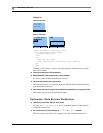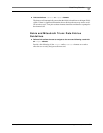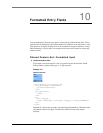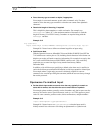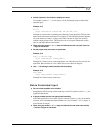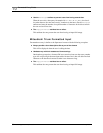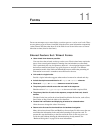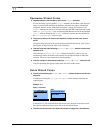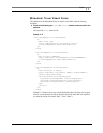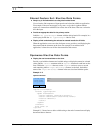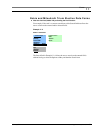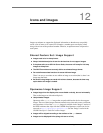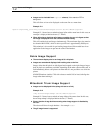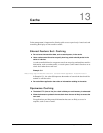
Forms
11
60 Genie Application Style Guide February 2001
Openwave Wizard Forms
■ Separate cards are not needed for each of the <input> elements.
It is not necessary to place separate <input> elements on individual cards; however,
doing so ensures breaks between the elements and allows for control of backward
navigation. See the section “Backward Navigation” on page 39 for details. If all
<input> elements are placed on the same card, the label OK is automatically bound
to the
<do type="accept"> key, and pressing OK takes the user to the next defined
<input> element. When the last <input> element is reached, the label defined for
the
<do type="accept"> action is used.
■ The primary label for all cards in the sequence, except the final card, should
be OK.
The label for the last card in the wizard should explain the final action, such as Save,
Send, Order, or Buy. Limit the label to five characters.
■ Text and links and links following a <select> or <input> element renders on a
separate card.
Cards that have a <select> or <input> element followed by a link or text will
automatically render on another card when the user accepts the input or makes the
selection. This may cause unnecessary extra keystrokes.
■ Limit the number of characters preceding a <select> or <input> element to 30.
Long text preceding the option or input field will scroll off the screen.
Nokia Wizard Forms
■ Provide a link following the <input> or <select> element to the next card in the
sequence.
In addition to binding the <do type="accept"> action, include a link after the
required input.
Example 11-1
Nokia 7110 Browser
In Example 11-1, the Next link allows the user to easily navigate to the next card in
the sequence without having to select Next from the Options menu.
■ The label for the last link in the wizard should be no longer than 18 characters.
Name (first & last):
[ ]
Next
Options
Back
------ Order Info -----
Name (first & last):
OK
Clea
r
A
BC
John Doe



